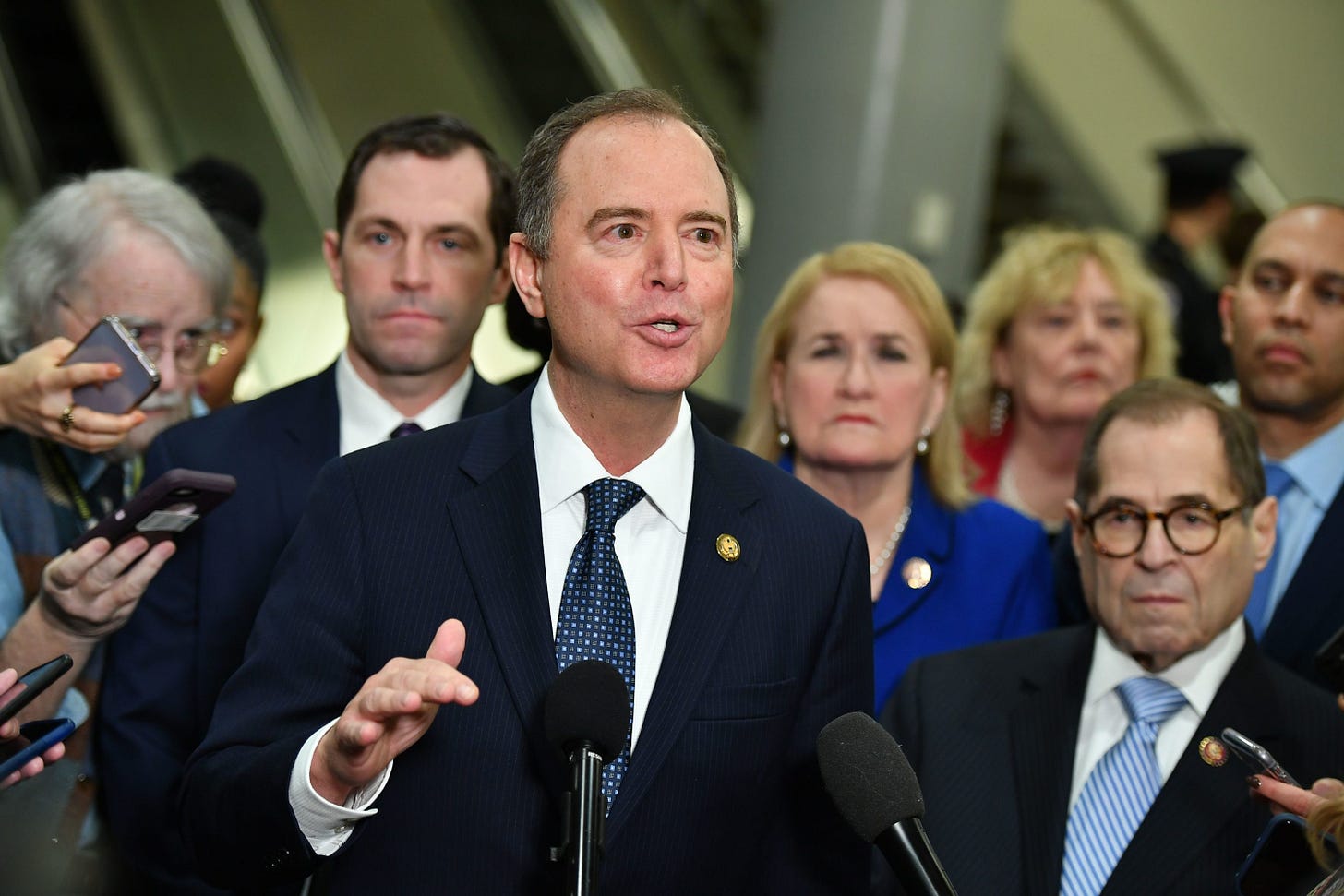Does This Impeachment Trial Matter?
Seeing past the surpriselessness.

As a news story, the Trump impeachment trial doesn’t have much . . . news to it. The ending is all but certain. And most of what will happen between now and the verdict will be speech-making about evidence, law, and procedures—terrain already very familiar to anyone who has been paying attention over the last several months. Yes, there’s a chance, however slim, that new witnesses will be brought in to testify. But barring that, this is a surpriseless trial. Which is why so much of the press coverage has focused on the quality of the oratory, the sleepiness of the senators, and other relatively trivial matters.
Still, the House impeachment managers have succeeded in injecting a substantial amount of new evidence into the record. Most of their presentation on Wednesday, the first day of their opening arguments, was drawn from the weeks of impeachment hearings the House held last year. But they also integrated many of the new details that have emerged over the last month: the information and documents released by Lev Parnas, the tranche of highly redacted documents released by the Office of Management and Budget late Tuesday night, and the recent finding by the Government Accountability Office that the administration’s withholding of aid from Ukraine violated the law. (Our own Kim Wehle catalogued much of this recent evidence here.)
All the new information buttresses the managers’ case, but none of it seems likely to have any effect on Senate Republicans. At this point, it’s almost assured that nothing will.
So instead of speculating about the unlikely event of a major development, it’s probably more productive to ask some questions, both factual and normative, that haven’t been answered yet. Because if we’ve learned one thing from the three previous presidential impeachment proceedings (counting the aborted Nixon impeachment process), it’s that they beget many precedents and will fascinate and confuse generations to come.
Question 1: If President Trump were as deeply concerned last year about corruption in Ukraine as his defenders claim, why didn’t he ask the attorney general to investigate it? Or the secretary of state? Why did he only ask the government of Ukraine—which, keep in mind, he was apparently convinced was hopelessly corrupt—to investigate an American citizen?
Question 2: Should the president be able to change laws after they’re passed? This is effectively what President Trump did when withholding aid to Ukraine. Congress had passed a law mandating that the aid be delivered if the State and Defense Departments certified that Ukraine had reached certain anti-corruption benchmarks. President Trump then signed that legislation into law. The State and Defense Departments made their certifications. And then . . . President Trump changed his mind and tried to block the aid.
President Obama similarly tried to amend legislation retroactively. In his case, the law in question was Obamacare, and conservatives howled in dismay. But maybe both parties now tacitly admit that presidents should have the power to change or ignore legislative text altogether—which is okay, so long as neither of those parties claims to uphold the Constitution.
Question 3: What reason does the administration have for refusing to comply with subpoenas from the House? This is a separate question from what power or authority they cite. It is settled constitutional law that executive privilege exists, although its borders are vague and largely untested. The question is: For what reason does the president, according to his lawyers, want to withhold information? If witnesses and documents would tend to confirm his account of the Ukraine scandal—that it was an honest attempt to fight corruption in a hopelessly corrupt country, and that he couldn’t trust American diplomats to do it so he relied on these guys, and the phone call was perfect—then his lawyers’ argument would go something like this: “We’d love to release all this information to you and prove our case, we really would. But you see, we just can’t because _________. So please just take our word for it.”
But that blank remains starkly empty. The administration has provided no explanation beyond “We’re doing this because we can.”
The Senate is unlikely to have answers to any of these questions by the time it votes on the articles of impeachment. But they’re worth asking anyway. Because maybe, like the Clinton impeachment, the Trump impeachment will have an effect on the next presidential election. And maybe, like the Watergate investigation, it will result in a series of reforms and curtailments of presidential power.
That’s why it’s important that new evidence keeps emerging, and that unanswered questions are asked. Not because they will change the odds of the Senate removing President Trump from office. And not just for the sake of posterity and the integrity of impeachment as a constitutional tool. But also because, even after the Senate acquits Trump, this shabby, sorry scandal might yet lead, in some unexpected way, to a chance for constitutional repair.
At least we can hope.


